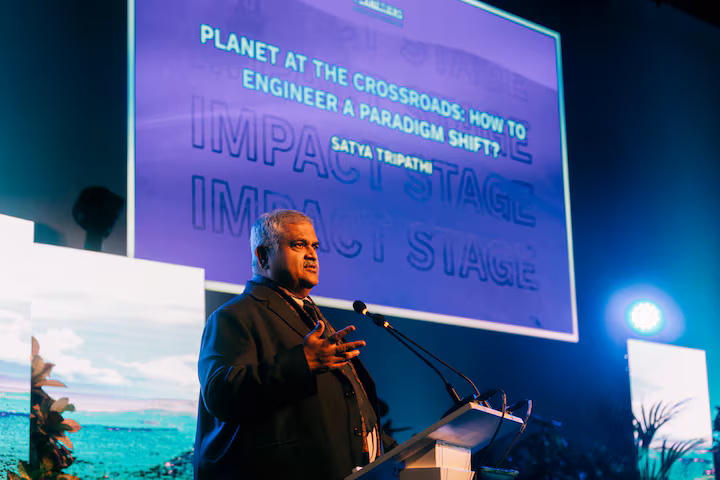Grassroots Environmental Initiatives Led by Satya Tripathi
Innovations and Initiatives Innovations and InitiativesPosted by NewAdmin on 2025-02-04 08:56:52 |
Share: Facebook | Twitter | Whatsapp | Linkedin Visits: 20

Satya Tripathi, a seasoned development economist and former UN Assistant Secretary-General, is pioneering grassroots approaches to environmental sustainability through the Green Economy Accelerator for a Just Transition (GREAT). This initiative emphasizes empowering local communities, particularly smallholder farmers in India, to adopt sustainable agricultural practices. Tripathi critiques traditional "top-down" environmental finance methods, advocating instead for direct, community-led actions to address global environmental challenges.
GREAT collaborates with partners such as Kheyti, SayTrees, Global Vikas Trust, and Sow and Reap to promote low-tech, nature-based solutions like greenhouse-based permaculture. These methods are designed to be accessible and effective for small-scale farmers, enabling them to implement sustainable practices without relying on costly technological interventions. Tripathi underscores the importance of interconnected, proven projects in driving meaningful environmental progress.
In addition to GREAT, Tripathi co-founded the Global Alliance for a Sustainable Planet (GASP), which provides strategic support and financing to grassroots environmental projects. GASP aims to enhance communities' quality of life and ensure ongoing sustainability by facilitating global exchanges and supporting ethical, high-quality scientific research in sustainable infrastructure, climate adaptation, and resilient ecosystems.
Tripathi's overarching philosophy is that by focusing on fixing the planet through sustainable practices, market stability will naturally follow. He believes that empowering individuals and communities to take direct action is crucial for addressing environmental issues that affect nearly eight billion people worldwide.
Through initiatives like GREAT and organizations like GASP, Tripathi is championing a shift towards grassroots solutions, highlighting the effectiveness of community involvement and low-tech interventions in tackling environmental challenges.
Search
Categories
Recent News
- Bihar's Top Cop Opens Doors to Public Grievances
- Hyderabad Gears Up for Presidential Visit: Traffic Diversions Announced
- Hyderabad Expressway Gridlock: Three-Car Pile-Up Causes Chaos
- Hyderabad Gears Up: Security Measures for Presidential Visit
- Hyderabad's Rs 23 Lakh Scam: Fake Trading App Dupes Investors
- Pinkathon Hyderabad: Empowering Women, One Step at a Time
- Hyderabad's Drug Supply Chain Unravelled
- Hyderabad's New Year's Eve: Safety Meets Celebration
Popular News
- Navigating IPO Market Dynamics Amid Volatility and Regulatory Changes
- Innovative Green Practices and Environmental Initiative
- Massive Worldwide Microsoft Outage Disrupts Multiple Sectors
- తెలుగుదేశం పార్టీ - పేదరికాన్ని నిర్మూలించడంలో వాగ్దానం
- Universities Embrace Remote Learning Technologies Amidst Ongoing Pandemic